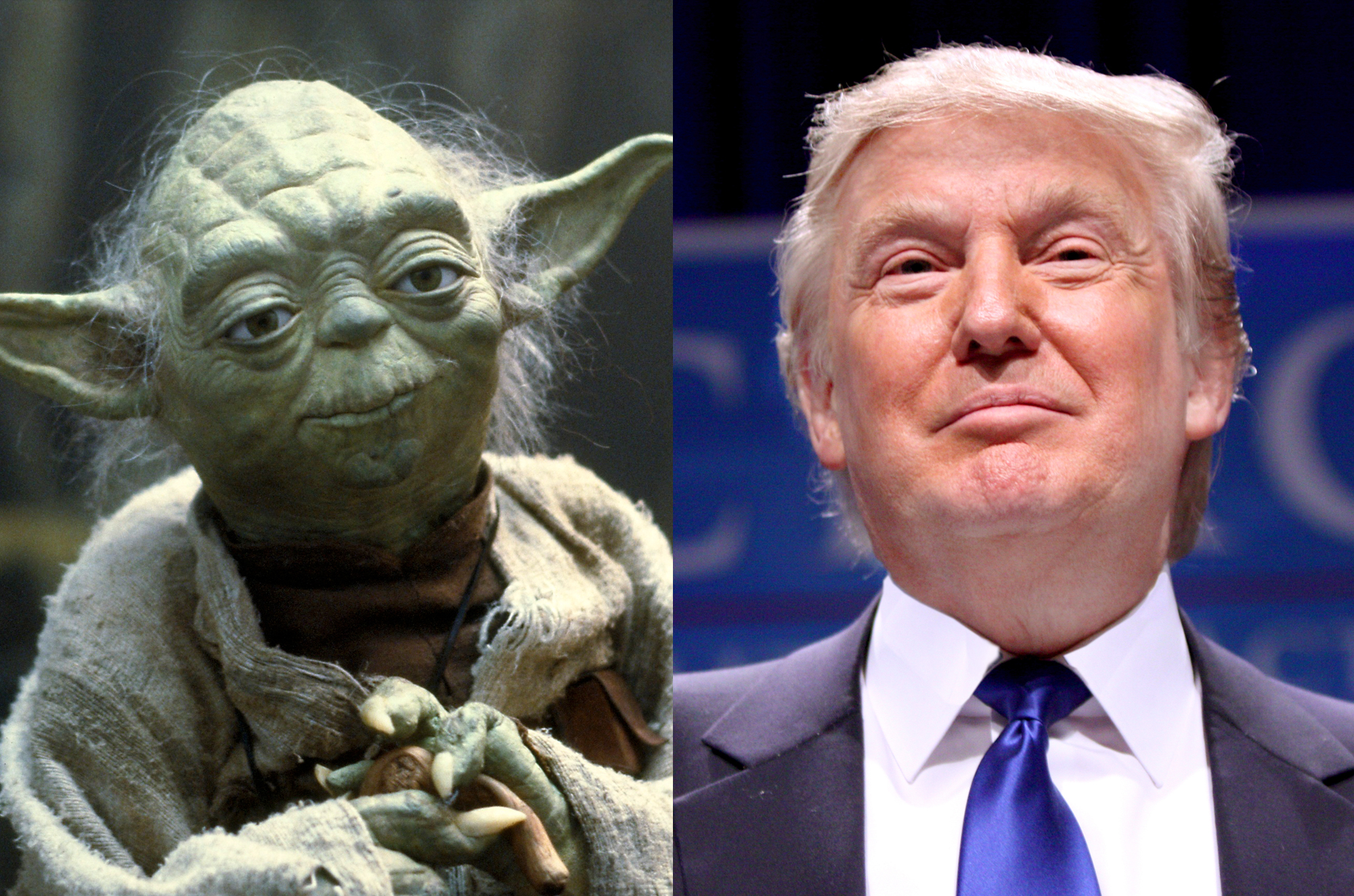When you think about it, or, to be more accurate, when I think about – but hopefully you will too after reading this – Donald Trump and Yoda are remarkably alike. Believe me; nobody is more surprised than I am to be making this claim, as I am not a particular fan of either character – not the little old green-grey guy, nor the taller, younger orange and white one – but whoever insists on liking or agreeing with their teachers, loses out on many opportunities to learn important lessons.
Of course there are plenty of ways in which Master Yoda and Mr. Trump differ, I know, but if you will hang in for a few brief sentences here, you will discover how these two cultural phenomena – one real and the other not so much, but I leave it to you to decide which is which – are not only very similar, but how each models for us a crucial life skill.
Whether it’s a Jedi knight standing before Yoda, or the huge crowds who gather before Donald, those gathered have the same experience. They stand before someone who expresses their most ardent desires – who not only makes them feel heard, but who finds words to express what they themselves have long-intuited but have not been able to adequately articulate, and who then amplifies that articulation so that it becomes an actionable plan.
Each creates an experience in which people feel that the reality in which they find themselves – one in which they typically feel personally powerless and badly served by those in established positions of power – is not the way things need to be, and that they actually have the ability to make a difference.
Both Yoda’s followers and Trump’s supporters feel that they have found someone who cares more about them than about any particular dogma or doctrine. That is why so many of Trump’s supporters have tossed aside so many of the classically conservative principles they previously clung too, and actually seem to delight in Trump’s willingness to undermine the Republican Party to which they have pledged allegiance.
This is about people over purity. This is about felt experience over philosophical commitment. This is about finding and lifting one’s voice. By the way, much of this applies to Bernie Sanders and his followers as well. In fact, the only reason he is not getting equal attention here is that his approach is a higher octane approach to long-held Democratic/Progressive values, which makes his popularity within the party easier to understand than is Donald’s among long time self-described conservative Republicans.
Although it is becoming almost trite to say it, this is a revolution. The revolution however is not simply about two parties, or who will be the next president. This revolution is to politics, what the “rise of the Nones” is in contemporary American religion.
Just as the “Nones” – those claiming no single, specific formal religious identity be it theist, atheist, or agnostic – are the fasted growing segment on the American religious landscape, Trump’s supporters especially, are making a similar claim about politics: party and ideology are not nothing, but they are secondary to who they as people are, and how the candidate represents their own personal sense of how the world ought to be.
Politics matters for these people, just as spirituality, meaning and ethics matter for the Nones. The coherence however, comes from the inside out – from privileging people over ideology, and the person in front of you more than some theory previously taught to you.
So yeah, you can like them both, not like them both, or choose one from column A and one from column B, but when it comes to Donald Trump and Yoda, we all have something to learn.

